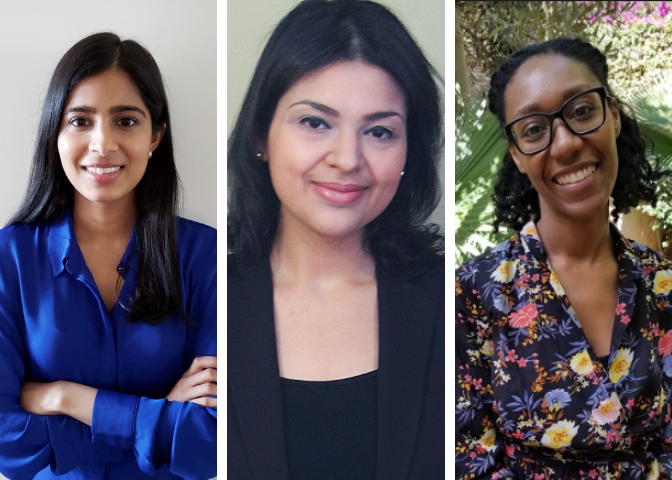Reclaiming the Kitchen: DLSPH Students Aim to Reduce Sexual Violence Stigma While Breaking Bread
April 24/2019
by Françoise Makanda, Communications Officer at DLSPH
The kitchen, a place long associated with gendered oppression, is being used to help address sexual violence among Afro-Caribbean teens.
DLSPH students Amika Shah, Megan Saad and Mikahelia Wellington are hosting 12-week cooking sessions through the Women’s Xchange program to facilitate intergenerational discussions among Afro-Caribbean mothers and daughters—or mother-daughter figures—about the importance of healthy relationships.
“The important part of the project is the intergenerational dialogue. We are looking within the community to find solutions to tackle this problem,” says Shah who is completing her studies at IHPME. “The kitchen element is culturally safe and recognizes the community’s strength.”

(right to left) Amika Shah, Megan Saad and Mikahelia Wellington
Students were tasked to develop a project last year with a strong equity focus while taking a course led by Assistant Professor Ananya Banerjee. She encouraged the team to submit their project to the Women’s Xchange program at Women’s College Hospital.
During the project’s development, students were keen on ensuring that community members and partners were involved. They found that the experience of violence has a lasting effect in communities.
“In our project, we developed a plan that would involve community members on what they think might work to build capacity for trauma-based intervention,” says Wellington, now a registered dietitian. “The cooking skills we are hoping to teach young women and the group facilitation will need to be adjusted based on what our community partners have in mind.”
Afro-Caribbean women are disproportionally affected by high rates of sexual violence and lack the resources to discuss these experiences. Throughout history, Black women have transformed the kitchen and cooking experience into a space for creativity and control, reclaiming its once oppressive legacy. Saad, who is completing her MPH in Social and Behavioural Sciences says that the kitchen is a tool that mixes both womenism and intersectionality. In addition to increasing dialogue, participant are keen on developing a community cookbook.
The project could begin as early as this summer.